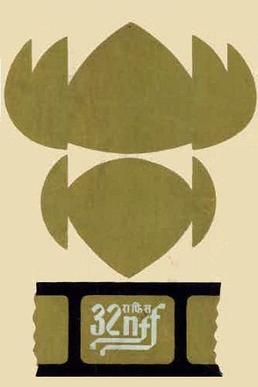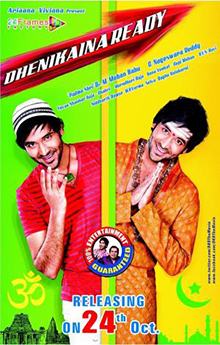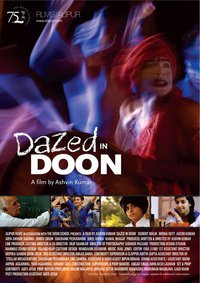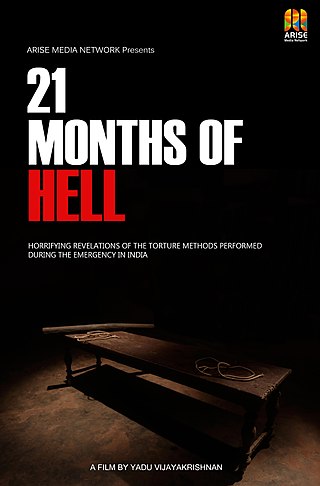
Sharmila Tagore also known by her married name as Begum Ayesha Sultana is an Indian actress primarily known for her work in Hindi and Bengali films. Regarded among the greatest actresses in the history of Indian cinema, Tagore is a recipient of two National Film Awards, a Filmfare Award and the Filmfare Lifetime Achievement Award for her contributions to Hindi cinema. In 2013, the Government of India, honoured her with Padma Bhushan, India's third highest civilian honour for her contributions to Indian culture through performing arts.

Anand Patwardhan is an Indian documentary filmmaker known for his socio-political, human rights-oriented films. Some of his films explore the rise of religious fundamentalism, sectarianism and casteism in India, while others investigate nuclear nationalism and unsustainable development. Notable films include Bombay: Our City (1985), In Memory of Friends (1990), In the Name of God (1992), Father, Son, and Holy War (1995), A Narmada Diary (1995), War and Peace (2002) and Jai Bhim Comrade (2011), Reason (2018), and The World is Family (2023), which have won national and international awards.

Waqt is a 1965 Indian Hindi-language Bollywood masala film directed by Yash Chopra, produced by B. R. Chopra and written by Akhtar Mirza and Akhtar-Ul-Iman. It was included in the British Film Institute's long list of films in consideration for its top ten of Indian films award. Released in India on 28 July 1965, the film stars an ensemble cast of Sunil Dutt, Raaj Kumar, Shashi Kapoor, Sadhana Shivdasani, Sharmila Tagore, Balraj Sahni, Achala Sachdev, Rehman and Madan Puri. It pioneered the concept of Hindi films with ensemble casts.
Censorship in India has taken various forms throughout its history. Although de jure the Constitution of India guarantees freedom of expression, de facto there are various restrictions on content, with an official view towards "maintaining communal and religious harmony", given the history of communal tension in the nation. According to the Information Technology Rules 2011, objectionable content includes anything that "threatens the unity, integrity, defence, security or sovereignty of India, friendly relations with foreign states or public order".

The Central Board of Film Certification (CBFC) is a statutory film-certification body in the Ministry of Information and Broadcasting of the Government of India. It is tasked with "regulating the public exhibition of films under the provisions of the Cinematograph Act 1952." The Cinematograph Act 1952 outlines a strict certification process for commercial films shown in public venues. Films screened in cinemas and on television may only be publicly exhibited in India after certification by the board and edited.
Arvind Trivedi was an Indian actor and politician from Gujarat. He, alongside his brother Upendra Trivedi, was prolific in Gujarati cinema for over 40 years. He became a household name for playing the role of Ravana in television series Ramayan (1987). He was elected to the Lok Sabha, lower house of the Parliament of India from Sabarkantha, Gujarat as a member of the Bharatiya Janata Party.

Basharat Peer is a Kashmiri journalist, script writer, and author.

Ashvin Kumar is an Indian filmmaker. He wrote, directed and produced India's only Oscar-nominated short film, Little Terrorist (2004), with his debut film Road to Ladakh being released in the same year. He also made the feature-length documentary films Inshallah, Kashmir (2012) and Inshallah Football (2010); feature-length thriller The Forest (2012); and coming-of-age tale Dazed in Doon (2010).

Papilio Buddha is an Indian film written and directed by Jayan K. Cherian. The film focuses on the atrocities committed against Dalits, women, and the environment. It features S. P. Sreekumar, David Briggs, and Saritha Sunil while Padmapriya, Prakash Bare, and Thampy Antony play supporting roles. Kerala-based environmentalist Kallen Pokkudan appears in another important role in the film, which also casts 150 Adivasis. The film was completely shot in Wayanad, Kerala and the cinematography was done by M J Radhakrishnan. The story deals with discrimination against landless Dalits and the politics of suppression of their struggle against the upper castes and other powerful elements locally.

The 32nd National Film Awards, presented by Directorate of Film Festivals, the organisation set up by Ministry of Information and Broadcasting, India to felicitate the best of Indian Cinema released in the year 1984. Ceremony took place in June 1985.

Miss Lovely is a 2012 Indian drama film directed by Ashim Ahluwalia and set in the criminal depths of Mumbai's C-grade industry. Ahluwalia's debut feature follows the story of the Duggal brothers who produce sleazy sex-horror films in the mid-1980s. The plot explores the intense and mutually destructive relationship between younger sibling Sonu Duggal, played by Nawazuddin Siddiqui, and his elder brother, Vicky. Sonu finds himself drawn to a mysterious young woman named Pinky eventually leading to his downfall. Miss Lovely had its cinematic release on 17 January 2014. The film has received the National Film Award – Special Jury Award and Best Production Design at the 61st National Film Awards.

Denikaina Ready (transl. Ready for anything) is a 2012 Indian Telugu-language action comedy film directed by G. Nageswara Reddy and produced by Mohan Babu. The film features Vishnu Manchu and Hansika Motwani in the lead roles. The film is a remake of the Malayalam film Udayapuram Sulthan.

Inshallah, Kashmir is a 2012 documentary film directed, produced and written by Ashvin Kumar. It is the story of contemporary Kashmir. A series of counterpointed testimonies, the heartbreaking coming-of-age of ordinary people; warped and brutalised by two decades of militancy and its terrible response. Tehelka says, "Although the camera and narrator usually provide the impartial eye in a documentary, stitching the story together, in Inshallah, Kashmir it is the Kashmiris who weave their deadpan narrative into a cohesive picture. Their matter-of-fact monotone says more than an entire valley of screams could."

Dazed In Doon is a 2010 film written and directed by Ashvin Kumar, who was invited by The Doon School to create a fictional film set in the school to mark its 75th Founder's Day in 2010. It has since become controversial as after the initial screening during the occasion, the school authorities moved to suppress the distribution of the film on the grounds that it "doesn't give the School a good name", referring to the scenes of bullying depicted in the film. The film runs to 55 minutes and was made in just four months, from the start of pre-production on 20 June 2010 to the first screening on 23 October 2010.

Haider is a 2014 Indian Hindi-language political crime thriller film directed by Vishal Bhardwaj, who co-produced it with Siddharth Roy Kapur, and written by Bhardwaj and Basharat Peer. It stars Shahid Kapoor, Tabu, Kay Kay Menon, Shraddha Kapoor and Irrfan Khan.

An Insignificant Man is a 2016 Hindi/English Indian socio-political documentary co-produced and directed by Khushboo Ranka and Vinay Shukla and also co-produced by filmmaker Anand Gandhi. and is about the rise of anti-corruption protests in India and the formation and rise to power of the Aam Aadmi Party (AAP). The film received a standing ovation at its premiere at the Toronto International Film Festival and has gone on to have sold out screenings at major festival across the world including the BFI London Film Festival & Busan International Film Festival.
Pahlaj Nihalani is an Indian film producer. He was the former chairman of Central Board of Film Certification (CBFC) under the Ministry of Information and Broadcasting. He was also the president of the Association of Pictures and TV Programme Producers for 29 years until he resigned in 2009. He was sacked as CBFC chief on 11 August 2017 and soon Prasoon Joshi appointed as CBFC Chief by Smriti Irani.

21 Months of Hell is a 2017 documentary film about the torture methods performed by the police in India during The Emergency. The film is directed by Yadu Vijayakrishnan and produced by Arise Media Network.
No Fathers in Kashmir is an Indian drama film directed by Ashvin Kumar. Written by Ashvin Kumar, the film stars Zara Webb, Shivam Raina, Kulbhushan Kharbanda, Anshuman Jha, Natasha Mago, Sandeep Verma. The film was released on 5 April 2019.

The Kashmir Files is a 2022 Indian Hindi-language drama film written and directed by Vivek Agnihotri. The film presents a fictional storyline centred around the 1990 exodus of Kashmiri Hindus from Indian-administered Kashmir. It depicts the exodus and the events leading up to it as a genocide, a framing considered inaccurate by scholars. The film claims that such facts were suppressed by a conspiracy of silence.















